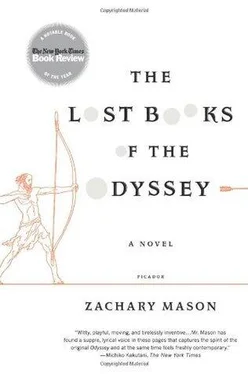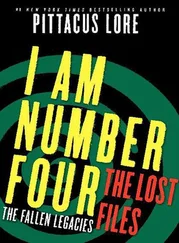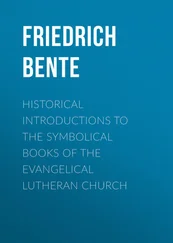Odysseus thought a little while (or possibly a long while — he was distantly aware of nights passing, greenery sprouting from oak trees and withering away, through all of which Athena’s grin was immovable) and asked to be young again, or at least not old, and to spend eternity making his way from a war indefinitely far in the past to an island indefinitely far in the future. He would remember that the war had been painful, but that he had won it. The details of the island would be vague — splintered images would come from time to time — but he would be certain that it represented the consummation of every desire. He did not want to know that he was a ghost. Let trials and cruel kings and monsters come, he said, and let them all be overcome at the last second. Above all, he said, stay with me this time. *She would, she said, and she had.
Athena granted his request. Moreover, as she knew full well that the age of heroes was fading like an ember, she turned her back on Mount Olympus and went with him.
Much as she dotes on him her mind sometimes wanders and she looks back in on Earth. When this happens a certain comet passes through the constellation Orion for the space of seven days before slipping back out into the great night. My grandfather was privileged to observe this rare celestial phenomenon and averred that his grandfather before him had seen it in his youth. *
*In the standard Odyssey , Athena did not speak to Odysseus between his departure from Troy and his arrival back on Ithaca.
*This idiosyncratic and oddly personal interjection is the only one of its kind in the Lost Books . Otherwise, the narrator does not offer direct commentary in those stories told in the third person.
When Odysseus was in the land of the dead the veiled ghost of a woman sought him out, the murmuring shades making way for her. The beauty of her eyes, whose green was just visible through her cloth, was such that Odysseus suffered her to approach and drink from his sacrifice’s blood. She said:
There was a time before I became a gardener when my life was full of noise, children, cousins and most of all suitors, of whom I had many and spurned most. I had a rival, powerful and jealous, and things came to a crisis. Afterwards I retired to tend my island, taking delight only in form, making every tree on the hill, every stone on the beach reflect the harmony of my design. I rejoiced in my garden and had no visitors and was very lonely. Sometimes I thought I heard the footsteps of tentative guests, unsure of their welcome, and my heart quickened. But when I went to meet them the footsteps stopped, leaving only their echo among the multiplying statues of the garden. I hissed and cried my frustration and the days were long for me.
One day I thought I saw someone walking along my well-tended paths. I went to meet him and found not a visitor or a statue but a silver disc hanging in the air, reflecting the brilliant sun. I stared into it as it floated toward me, unearthly, the moon come down to haunt me. A flash of bronze in my peripheral vision and my mind is full of the distinctive lineaments of a sword.
Suddenly it is twilight. A shadow with a blade and shield stands beside me in the half darkness, insubstantial as smoke. But there is someone else — I turn and see a beardless young man with blond oiled hair. I am delighted — it is my lover from so long ago, so slender and fleet. I reach for his hand, which he gives me willingly. Hermes *says, “I had hoped not to see you again, Medusa.”
*Lord of snakes and god of ghosts, Hermes was the psychopompos, the god who conducted newly dead souls to the underworld.
Running from her brother through the old city in the early morning when the shadows were sharp and her skin iridescent in the sun she found a refuge in the temple of Apollo. Within, it was dark and cool and the silence was a comfort — she lay down and put her head on her arms, watching the statue of the god, who seemed lost in thought. She fell into that middle sleep where everything is grey stillness and stayed there until the grey coalesced into a beautiful man speaking softly of an island full of cattle whose death would be many men’s undoing, of a mother wading in the River Styx and holding her infant son by the heel that would one day blossom into his ruin, of the inexorable tightening of fate’s net. She woke up and found Apollo regarding her thoughtfully. He said, “Never mind. No one will ever believe you.”
Thereafter, whenever she looked at the sun long enough she could hear Apollo as he talked to himself, a slow, endless monologue touching on all things under his far-reaching gaze, and in that way she knew the future. With staring, sun-blind eyes she learned the sad ends of Hector her brother and Priam her father and wept for them even as they sat beside her. She begged them to flee, to pray, to stay inside on inauspicious days but they only smiled, kissed her, brushed her aside. She saw that the war that was coming to Troy could not be won, that it could only end in flame and fields sewn with salt, but no one would be persuaded. She heard her own fate, to warn but be disbelieved, to inveigh against the horse as it was pulled through the city gates, finally to be a slave in a distant country. She thought of fleeing but knew from the fall of the city wall’s shadow, from the voice of the wind sighing through the towers and from the shapes of the bright clouds overhead, always changing, that it would not be so, that her fate was elsewhere, that for once the god had lied.
The rigging creaks and the bow wave hisses as Homer lies in his hammock looking up at the shadows of ropes crisscrossing the glory of the white sail’s glowing spread, the sun behind it. The stories he has been composing float just below the surface of his mind and, blissful, he falls asleep. This is his dream:
Thin light, driftwood, seawrack, black flies aimlessly circling. No one else was on the beach, which surprised me, made me think of the contour of the continent and how much of the coast, at any given time, is empty or nearly empty, of a lone fisherman in waders or a spark of campfire seen at distance from a high coastal road. Something half buried in sand, too angular and regular to be kelp. Sweeping away the sand, thinking it might be an old chunk of keel or jetsam from the off-shore refineries. Instead it is a book, the cover cut from some thick hide, salt-swollen, pitted and abrasive. The pages are slick, fibrous, plasticine — not paper. I open it at random and there is a page of neatly spaced symbols, about eleven wide and twenty deep. It is no alphabet I recognize — I wonder if it could be Sanskrit or katakana and, briefly, the letters’ gestalts twist themselves to my expectations but I see they are different, in fact not letters at all, but tiny, intricate drawings, no two alike. The contour of each symbol is immensely detailed, what looks like a straight line from a distance revealing itself on close inspection as an elegant welter of hooks and curlicues. Study reveals nothing, just intricate enigmatic shapes that could as well be the scars of a burrowing worm as an accounts ledger as a Confucian classic, no visible order beyond the regular spacing and no symbol ever repeating (unless the ink ran into the grain of the page somehow and I am focused on something irrelevant). Having nothing better to do, I turn the pages as the sun slides across the sky and the tide comes in. The breaking waves make a faint blue light (luciferin and luciferase mixing in the oceanic bacteria, a part of my distracted mind notes) by which I read (if that is the word) the book, poring over each page, wearing away the sense of entropy. Now there is an intuition, an intimation of order, though when I rally myself to articulate it, nothing comes. If I can’t put it into words is it real? I wonder. Night now, headlights sliding over high distant coastal cliffs.
Читать дальше












